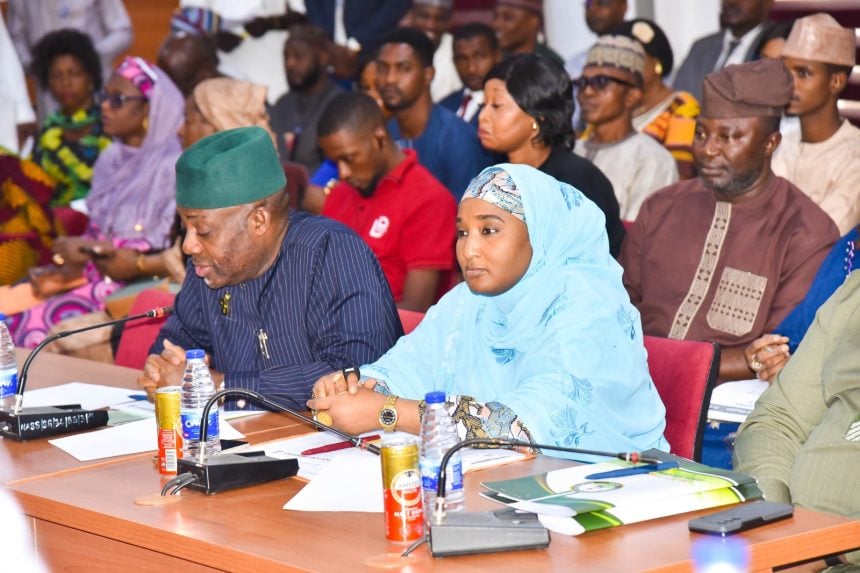The Literacy Promotion Association of Nigeria (LiPAN) has raised serious concerns over the deteriorating state of university education in Nigeria, describing the poor funding of public universities as a national emergency that requires immediate government attention. The association warned that the continuous underfunding of higher institutions threatens not only the future of Nigerian students but also the nation’s overall socio-economic development.
Speaking during a recent event in Port Harcourt, the National Vice President of LiPAN and Dean, Faculty of Humanities at Ignatius Ajuru University of Education, Rumuolumeni, Dr. Ibiere Ken-Maduako, painted a grim picture of the funding crisis rocking Nigerian universities, noting that most institutions are now struggling to fulfill their primary objectives of teaching, research, and community service.
LiPAN’s Warnings on Funding Deficit
Dr. Ken-Maduako emphasized that public universities across Nigeria are currently grappling with a deep financial crisis that has left them under-equipped and unable to compete globally. According to her, the issue of poor funding has been identified by the National Universities Commission (NUC) as one of the most critical challenges facing the sector, alongside inadequate infrastructure, shortage of qualified academic staff, and weak research capabilities.
She explained that the situation has reached an alarming stage where many institutions now rely heavily on external donors, irregular internally generated revenue, and sporadic tuition increases to stay afloat. This, she argued, is unsustainable for a system that should ideally be supported by consistent and adequate government subventions.
“The subventions coming from both federal and state governments are no longer sufficient to meet even the most basic needs of our universities,” she lamented. “Without adequate funding, the quality of education will continue to decline, and Nigeria risks producing graduates who are ill-prepared for the challenges of the modern world.”
Impact on Students and Academic Standards
LiPAN’s vice president further highlighted the devastating impact of poor funding on students and academic staff. She noted that students are currently facing enormous financial burdens, as the rising cost of transportation, accommodation, food, and study materials continues to strain their ability to remain in school.
Many students, she said, are now battling mental health challenges caused by financial stress and poor learning environments. The shortage of research facilities, dilapidated lecture halls, overcrowded hostels, and lack of access to digital learning tools have all combined to erode the quality of education in Nigerian universities.
According to Dr. Ken-Maduako, this situation has created a “crisis of confidence” in the Nigerian university system, as employers increasingly doubt the preparedness of graduates for the workplace. She also noted that the deteriorating state of infrastructure in universities has made research and innovation nearly impossible, further limiting Nigeria’s contribution to global knowledge production.
Call for Institutional Autonomy and Reform
To address these challenges, LiPAN has called on the federal and state governments to grant universities greater autonomy in managing their resources and generating revenue. Dr. Ken-Maduako stressed that allowing institutions to make independent decisions regarding partnerships, investments, and collaborations will help improve efficiency and accountability.
She also encouraged stronger linkages between universities and the private sector to enhance innovation, research, and employability. According to her, creating an enabling environment where industries actively support academic research would lead to breakthroughs in science, technology, and social development.
LiPAN also proposed the establishment of a multi-stakeholder task force made up of representatives from government agencies, universities, labour unions, student bodies, civil society groups, and the media. The goal of this task force, she said, would be to monitor educational reforms, ensure proper allocation of funds, and regularly publish progress reports to maintain transparency and accountability.
“This problem cannot be solved by government alone. We need a collective approach that involves all sectors of society,” Dr. Ken-Maduako emphasized. “If we fail to act now, we may lose an entire generation of young Nigerians to a broken education system.”
LiPAN’s Recommendations for a Sustainable Future
LiPAN’s presentation outlined several key recommendations aimed at reviving university education in Nigeria:
- Increased Budgetary Allocation: The government should significantly raise its annual budget allocation to education, ensuring that universities receive steady and adequate funding for operations and development.
- Autonomy for Universities: Institutions should be granted the freedom to manage their finances, form international partnerships, and generate revenue through innovation-driven projects.
- Strengthening Research Capacity: There should be increased investment in laboratories, libraries, and research centers to boost innovation and academic output.
- Improved Staff Welfare: Lecturers and non-academic staff should receive better remuneration and training opportunities to improve morale and teaching quality.
- Student Welfare Support: Government and university administrations should introduce scholarship schemes, subsidized transportation, and improved hostel facilities to ease the burden on students.
- Industry Collaboration: Stronger ties between academia and industry should be established to make research more practical and beneficial to national development.
The Broader Implications for Nigeria’s Development
Education experts have repeatedly stated that no nation can develop beyond the quality of its education system. Nigeria’s public universities remain the backbone of human capital development, producing the engineers, doctors, teachers, and researchers that drive national progress.
However, with poor funding and decaying infrastructure, Nigeria risks falling further behind in the global knowledge economy. The consequences of neglecting university education extend beyond the classroom—they impact innovation, employment, governance, and the nation’s competitiveness.
LiPAN’s warning therefore serves as a wake-up call to policymakers, urging them to treat education not as a cost but as an investment in the nation’s future. The association’s call for reform comes at a critical time when many universities are struggling to maintain academic calendars and retain qualified staff due to economic constraints.



